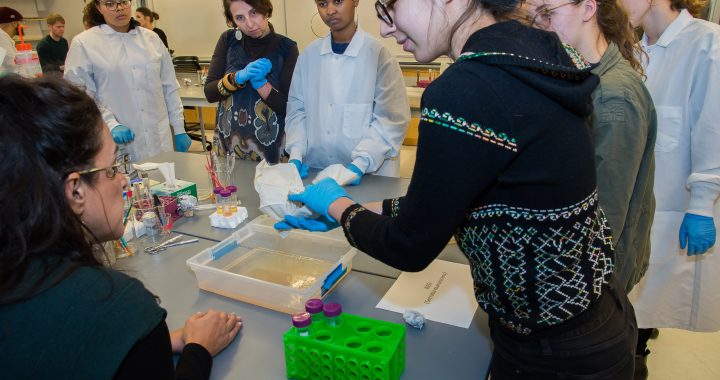Science and Engineering for Social Good was held at Georgia Institute of Technology on February 9-11, 2018. The meeting was presented in partnership with Georgia Tech, Stony Brook University, and The SUNY Louis Stokes Alliance for Minority Participation (LSAMP).
You can view selected presentations from the meeting here.
Program Information
Many of the pressing global issues and problems of our time, including health, energy and the environment, infrastructure, security, and economic development have significant scientific and technological dimensions. In order to meet the challenges, interdisciplinary approaches—bringing together STEM, the arts/humanities, global knowledge, and a diversity of people and ideas—must be at the core of education and work in this 21st century. In this conference, we will explore strategies to build holistic approaches to education—for both STEM and non-STEM majors (e.g,. STEM-enhanced liberal arts). In addition, we will explore the implications of such highly interdisciplinary and global approaches for education, and the increasingly diverse and global workforce.
Leading experts focused on programs, strategies, and tools for building highly interdisciplinary STEM/STEM-related programs—for majors and non-majors. Four cross-cutting approaches were illustrated through SENCER (Science Education for New Civic Engagements and Responsibilities), Vertically Integrated Projects (VIP) (Georgia Tech), Serve-Learn-Sustain (Georgia Tech), and LSAMP (research and practice in diversity in STEM). Participants examined each of these cross-cutting approaches in the context of one of the following areas: engineering and technology education, energy and the environment, and medicine and health. As an outcome for the work, each participant should draft a tentative plan as to how the knowledge gained might be used to design/redesign a course, curriculum, or special project that embodies the holistic approach to STEM education and/or the work environment.
Conference presenters included:
- Edward Coyle, Director of the Arbutus Center for the Integration of Research and Education, Georgia Institute of Technology
- David Ferguson, Distinguished Service Professor, Technology and Society, and Provost’s Scholar, Stony Brook University
- Norman Fortenberry, Executive Director, American Society for Engineering Education
- Jennifer Hirsch, Director of the Center for Serve-Learn-Sustain, Georgia Institute of Technology
- Jinsang Lee, Professor, Department of Technology and Society, and Director General, Institute of International Development and Cooperation, SUNY Korea
- Greg Pearson, Scholar of K-12 Engineering Education and Public Understanding of Engineering, National Academy of Engineering
- Eliza Reilly, Executive Director, National Center for Science and Civic Engagement
The program book is below:
Download (PDF, 1.27MB)
More about conference partners:
Georgia Tech Vertically Integrated Projects (VIP)
Georgia Tech Serve-Learn-Sustain (SLS)
Center for Health and Humanitarian Systems (CHHS)
Stony Brook University
The SUNY Louis Stokes Alliance for Minority Participation (LSAMP)

